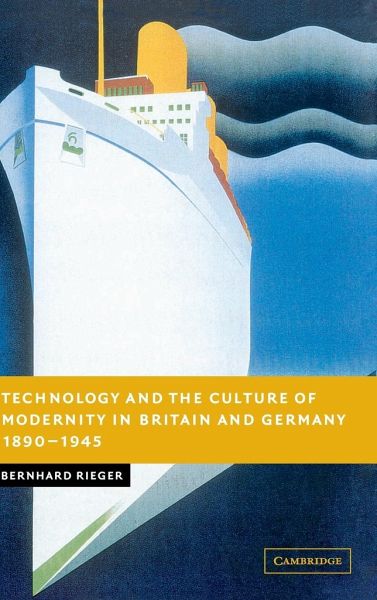
Technology and the Culture of Modernity in Britain and Germany, 1890-1945
Versandkostenfrei!
Versandfertig in 1-2 Wochen
111,99 €
inkl. MwSt.

PAYBACK Punkte
56 °P sammeln!
This book examines the obsession for new technology that swept through Britain and Germany between 1890 and 1945. Drawing on a wide range of popular contemporary writings and pictorial material, it explains how, despite frequently feeling overwhelmed by innovations, Germans and Britons nurtured a long-lasting fascination for aviation, glamorous passenger liners and film as they lived through profound social transformations and two vicious wars. Public discussions about these 'modern wonders' were torn between fears of novel risks and cultural decay on the one hand, and passionate support gener...
This book examines the obsession for new technology that swept through Britain and Germany between 1890 and 1945. Drawing on a wide range of popular contemporary writings and pictorial material, it explains how, despite frequently feeling overwhelmed by innovations, Germans and Britons nurtured a long-lasting fascination for aviation, glamorous passenger liners and film as they lived through profound social transformations and two vicious wars. Public discussions about these 'modern wonders' were torn between fears of novel risks and cultural decay on the one hand, and passionate support generated by nationalism and social fantasies on the other. While the investigation focuses on tensions between technophobia and euphoria, the book also examines the relationship between responses to technology and the differing political cultures in Britain and Germany before and after 1933. This innovative study will prove invaluable reading to anyone interested in comparative cultural history as well as the history of technology.














